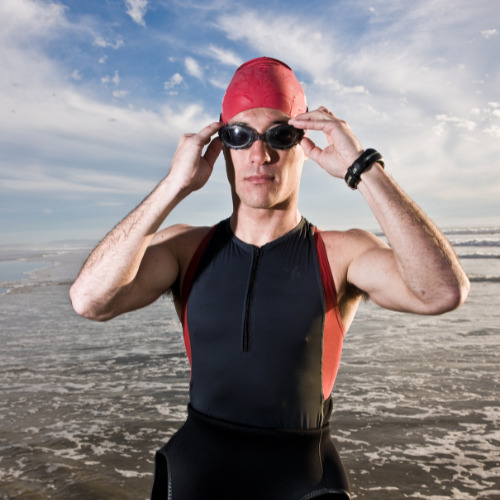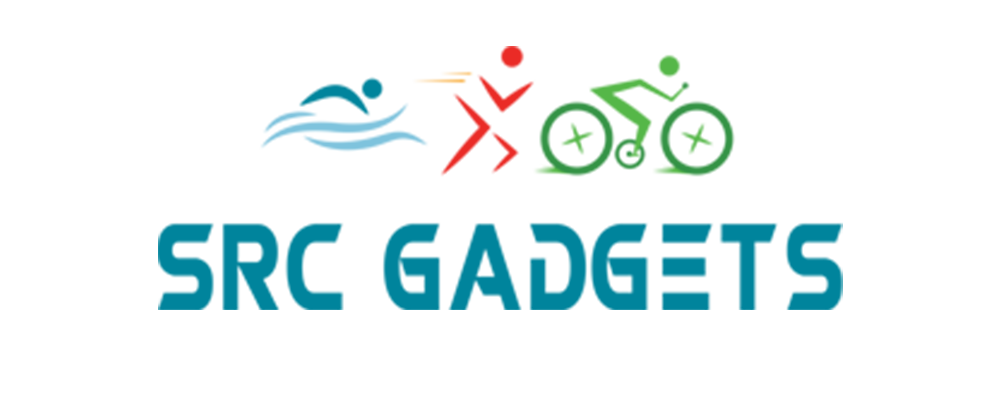How to Start Swimming for Triathlon
The world of triathlons can be as exhilarating as it is daunting. It is a challenge that mixes swimming, cycling, and running all in one go. Among the trio of disciplines, swimming emerges as the most enigmatic.
I remember my first foray into triathlon swimming; the water wasn’t just a medium but a challenge, a dance partner with its rhythm and whims. But, the allure of mastering this aquatic ballet is unparalleled.
Swimming for a triathlon isn’t merely about propelling oneself forward; it’s about grace, strategy, and understanding the water’s embrace.
So, how does one transition from casual laps in the local pool to the open waters of a triathlon? The journey begins with a single stroke, a commitment to harmonizing with the water rather than conquering it.
If you’re a newbie, diving into the world of triathlons can be exciting and a bit intimidating. But you know what? To make it a top-notch triathlete, you’ve got to nail down your swimming skills first. Luckily, I’m here with the lowdown on starting your triathlon swimming journey. Let’s get into it.
Getting Started with Triathlon Swimming
Understanding the Basics
Before you jump headfirst into the water, let’s talk about the ABCs of triathlon swimming. It’s not your regular leisurely swim; it’s all about the front crawl. This is a killer stroke that’ll work your cardiovascular system. They call it the front crawl or freestyle for the fancy folks. Why? Because it’s fast and efficient.
And here’s the bonus: Swimming Isn’t just about triathlons; it’s a stellar cardio exercise. It’s like hitting two birds with one stone you’re getting fit while prepping for your triathlon.
Gear and Equipment
You’ll need some essentials for this triathlon swim journey. Grab some swimsuits, goggles, and swim caps, and if you’re diving into open water, remember the wetsuit because it will help you float and stay warm, which is a win-win when tackling chilly waters.
How to Master Swim Technique?
Swimming is more than just moving through water. It’s about getting every kick, stroke, and breath just right. I remember when I first started, I struggled a lot. But with time, I learned that good swimming isn’t just about going fast; it’s about moving smoothly and efficiently.
So, how do you go from basic swimming to excellent technique? It’s all about understanding and practicing the details of each movement. Let’s dive into how you can master your swim technique.
1. Front Crawl Technique
The front crawl is your trusty sidekick in triathlon swimming. To nail it, focus on your body position, arm moves, and breathing. Yeah, it might feel like juggling chainsaws at first, but it’ll be smooth sailing with practice. Do not hesitate to ask professionals or coaches for tips.
2. Total Immersion Swimming
Total immersion swimming have you ever heard of it? This technique can seriously level up your game. It’s all about balance, a streamlined body, and minimum water resistance. Learning this? It’s like discovering the secret sauce for triathletes.
Are you thinking about taking the plunge into total immersion? Consider joining a program or checking out resources online.
Training for Triathlon Swimming
It s time to get serious, peeps. Your personalized training plan is your ticket to triathlon swim success. Mix it up with swim sessions that get gradually tougher. It’s like building a sturdy castle step by step, brick by brick. Here, consistency is your best friend.
Don’t snooze on strength and conditioning. These workouts are like the secret weapons in your arsenal. Squats, lunges, and core workouts they’re your pals. Strong muscles mean better performance and fewer injuries. So, don’t skip them.
Open Water Skills and Preparation
1. Navigating Open Water
Unlike your cozy pool, you will have currents, waves, and tricky sightlines. But no worries, we’ve got you covered:
First, practice in open water whenever you can. Get friendly with lakes and oceans to boost your race day confidence.
Second, master the art of sighting. Lift your head briefly to stay on course it’s a game-changer.
And finally, try drafting behind fellow swimmers to save energy. Practice makes perfect here, so give it a whirl.
2. Preparing for Your First Race
It’s time to gear up for your debut triathlon! Follow this checklist to make it a day to remember:
Advanced Triathlon Swimming
Sprint vs. Olympic vs. Ironman Distance
Triathlons come in all shapes and sizes. Knowing the difference between sprint, Olympic, and Ironman distances is critical. Tailor your training for the one you’re gunning for:
Using Training Aids
Ready to level up? Consider adding some training aids to your arsenal. Tools like the Zen8 Swim Trainer can do wonders for your stroke, body position, and overall swim efficiency.
When preparing for a triathlon, it’s essential to have the right equipment. While aero bars are crucial for achieving a streamlined position on the bike, other gear elements play a significant role. For instance, having the best triathlon shorts can significantly enhance your comfort and performance during the cycling and running segments.
How to be a Part of Triathlon Events?
Joining Your First Triathlon
The big moment is here you’re diving into your first triathlon! Follow these steps to make it smooth sailing:
Ironman World Championship Aspirations
Dreaming big, huh? Qualifying for the Ironman World Championship ain’t a walk in the park, but it’s worth it. Here’s your roadmap:
Conclusion
Every stroke counts, from nailing the basics to mastering techniques to training like a champ and competing like a pro. Remember, It’s not just about speed but the harmony of each stroke, kick, and breath.
Dedication and guidance allow anyone to transition from primary splashes to fluid, efficient swimming. The water isn’t a barrier; it’s a partner in this dance.
Embrace the learning process, and soon, you’ll find yourself gliding effortlessly, making every swim a testament to your technique and dedication. Dive in with confidence, and let the water be your guide.

Eric Jordan
I am a writer by passion and a triathlete coach profession. In his free time, he swims, runs, cycles, and helps newbie athletes to achieve their goals.

